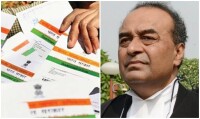Intelligence Hub IAS Review of Chambers and Office of Mr. Muk...
07 September 2018 (Friday)
07 September 2018 (Friday)
NATIONAL
1. No Sexual Offenses: The Constitutional Bench of the Supreme Court, Historical Decree
The Supreme Court has justified the sexual relationship made between the two adults in solitary confinement. In the unanimous verdict given by the Constitution Bench of the Supreme Court, Section 377 of the IPC was termed partially illegal.
After the Supreme Court's historic decision, India became the 26th country in the world, where gay relations have been legalized. The Supreme Court said that sexual intercourse between adults is not a crime by mutual consent. The provision of Article 377 of the Indian Penal Code, in respect of such sexual relations being lodged in crime, is subject to the breach of the right to equality and dignity provided in the Constitution.
The court, in keeping with the consent of section 377, excluded gay sex from the scope of crime, said that it is against irrational, sheer arbitrary and personal liberty. Constitution Bench comprising Chief Justice Deepak Mishra, Justice Rohinton Fali Nariman, Ajay Khanvilkar, Dhananjay Chandrachud and Indu Malhotra unanimously stated in 4 different pages in 495 pages that LGBTQ community has constitutional rights similar to other citizens of the country.
The Constitution Bench stating that sexual orientation is biological and natural, that any kind of discrimination is a fundamental right to abate the fundamental rights. The Supreme Court clarified that such consent should be an independent consensus that is completely voluntary and free of any kind of pressure or fear. The court said that morality can not be martyred on the altar of social morality.
On July 2, 2009, Delhi High Court decides to keep homosexuality out of the category of crime. Against this, several religious organizations and individuals reached the Supreme Court from 2009 to 2012.
The Supreme Court overturned this decision on 11 December 2013. At the same time, the issue of the final decision of the case was left to Parliament. In 2015, Shashi brought a private bill in the Tharoor Lok Sabha, where talk of homosexuality was kept out of the crime category, but the Lok Sabha voted against it.
What is Section 377: - According to section 377 of the IPC, in 1861, if someone creates a relationship with a man, a woman or a beast, it is a crime, then it will be a crime.
For this crime, he will have to face financial penalties with life imprisonment or up to 10 years of imprisonment. 377 has not been completely canceled. This section will be applicable on establishing unnatural relations with the people, even after establishing unnatural sex with the children, a case will be filed under this section.
The court said that everyone needs to ensure equal rights. Society should be free from prejudices.
The LGBT community has the same human, fundamental rights as other citizens.
Changes in the constitutional democratic system are essential. The right to life is human rights. Without this right the rest of the rights are justified.
Sexual Orientation is biological. Stopping it on the constitutional rights abuses.
Our diversity needs to be approved. The individual choice must be respected. LGBT has equal rights too. Right to Life is their right and it is the duty of the court to ensure that.
Adolescents' sexual relations are not harmful with consent Section 377 is not correct in the present form under paragraph 14.
The Court said that Section 377 of the IPC is a violation of the "right to live with dignity".
Because of section 377, members of the community are forced to live and live like double-class citizens while others are consuming the rights of their sexually transmitted zanos.
The society can not withhold mutual consent for sexual intercourse between two adults, because it is their personal matter.
India has signed international treaties for the rights and it is necessary for them to remain committed to these treaties.
The Constitution Bench arranged that where Section 377 is concerned with the consent of adults in the purview of sexual crimes, then the powers conferred by Article 14, 15, 19 and 21 of the Constitution are abrogated.
*
*
Yato dharmasto jai

Comments: